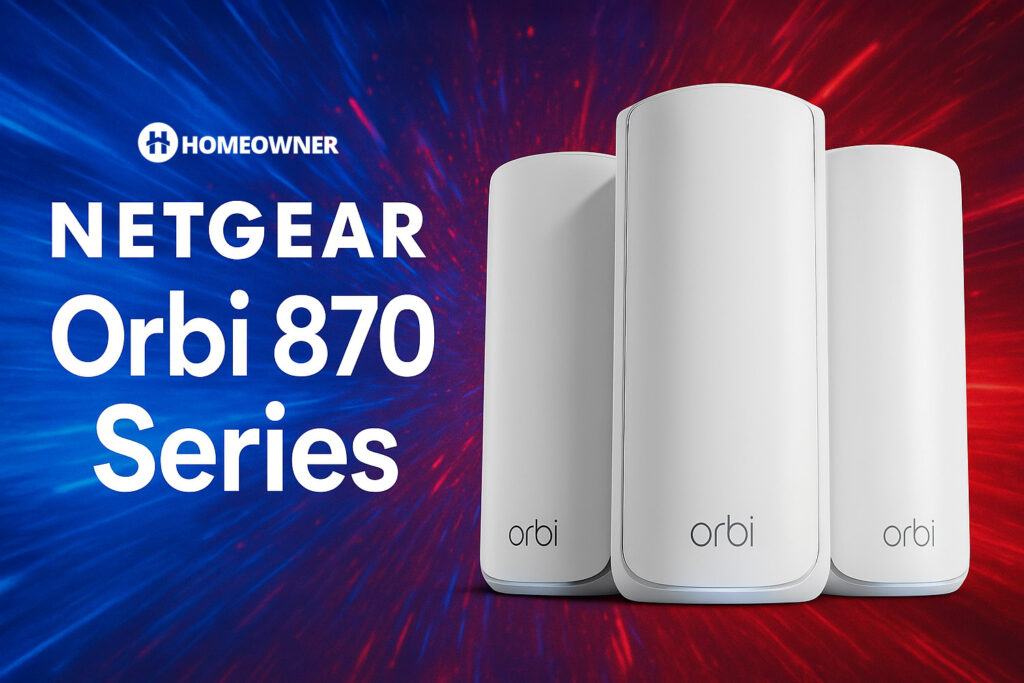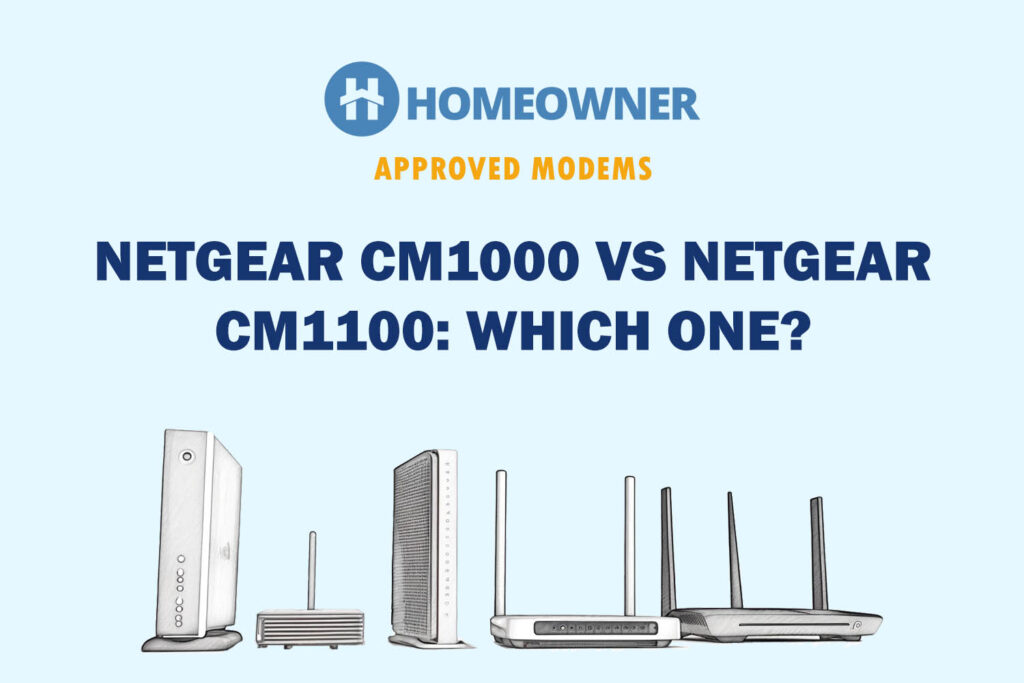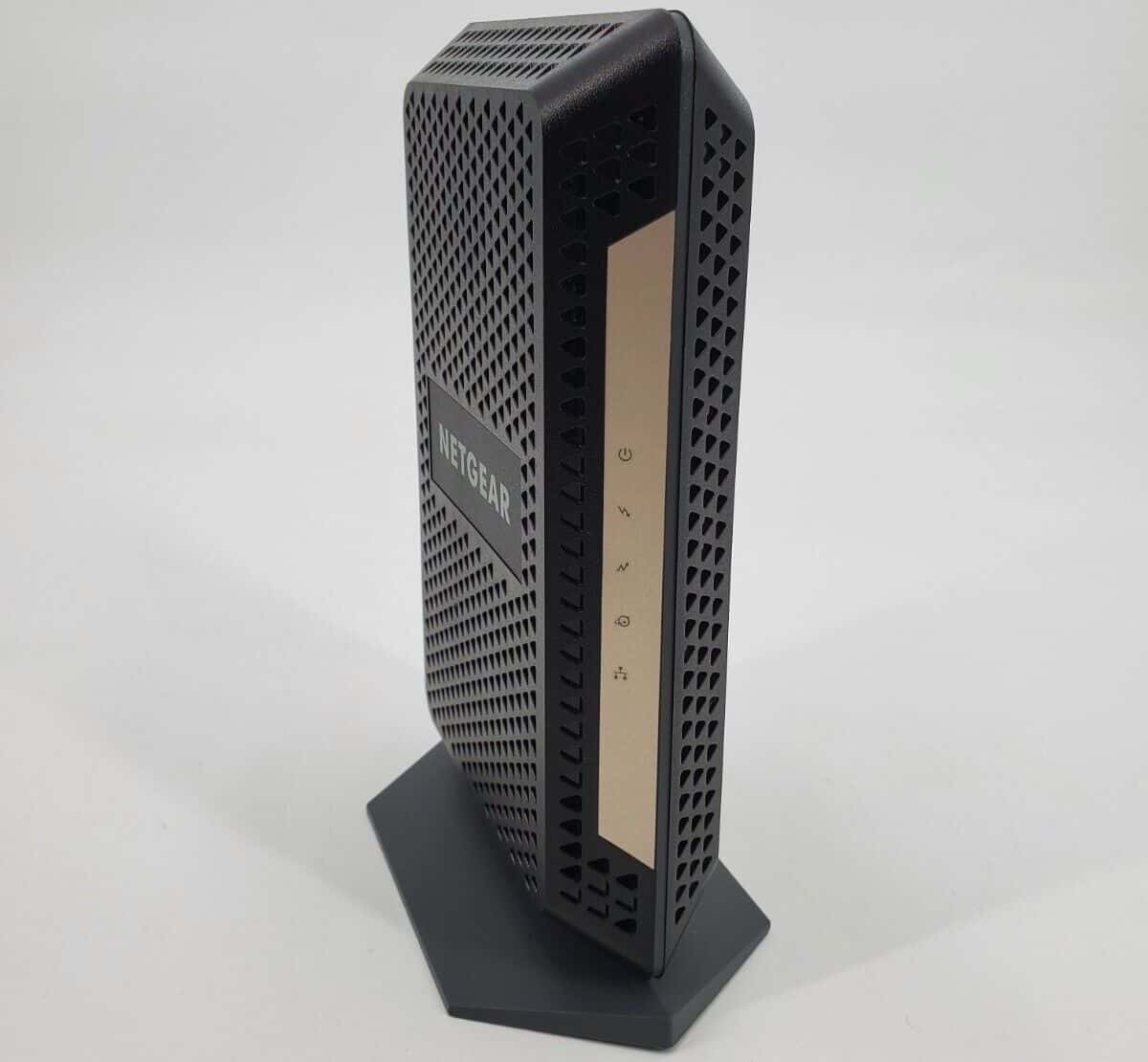
Netgear, without a hint of doubt, sets higher standards when it comes to networking devices. And while most of their products are show-stoppers, the CM1000 goes one step ahead by being one of the top Gigabit cable modems.
Still, I wouldn’t advise you to take my word for it. Instead, I suggest reading further to learn about its performance and capabilities.
👉 Related reading: Internet Bandwidth vs Speed: What's the Difference?
Netgear CM1000 Specs
| Technology | DOCSIS 3.1 |
| Backward Compatibility | Yes |
| Channel Bonding | 32 x 8 |
| Ports | 1 x Gig Ethernet |
| Phone Jack | No |
| Modem Router Combo | No |
| Suitable Internet Plan | Gig Internet (1Gbps) |
| Compatible ISPs | Xfinity, Cox, Spectrum, Mediacom, Sparklight, Optimum, and WOW Internet. |
| IPv6 Support | Yes |
| Processor | Broadcom BCM3390 |
| RAM | 256MB |
| NAND Storage | 128MB |
| Dimensions | 8.8 x 3.5 x 5.9 inches |
| Weight | 0.95 pounds |
Netgear CM1000 Review: After 3 Weeks of Use
Stacked with the latest standards, this Netgear modem outpaces its close competitors such as ARRIS SB6190 and Motorola MB8600. And that is exactly what I shall validate in the subsequent sections.
Also, just so you know, I tested the Netgear CM1000 as my primary modem for over three weeks, using it with a TP-Link router.
Netgear CM1000 Speed
When paired with Xfinity's 800 Mbps plan, the cable modem complemented the TP-Link Archer AX55 router with exceptional speeds.
Coming to the numbers, at 30 feet from the internet equipment, my MacBook Air witnessed 782 Mbps of download and 33 Mbps of upload speed.

Moving the testing device further at 60 feet, the speeds were dropped. Specifically, the download clocked 151 Mbps, and the upload reached 19 Mbps. These are still good enough and could handle most activities at hand.
I could play games, stream TV, while browsing on multiple devices, and also handle some of the smart-home gadgets. Performance-wise, I have no complaints, the device works as intended.
Compatibility with ISPs
Talking about ISPs, the Netgear CM1000 works swimmingly with most cable internet providers in the United States. Also, Netgear suggests pairing it with internet plans up to 1000 Mbps.
Here's a list of compatible internet providers along with their ideal internet plan:
- Cox Residential — Gigablast
- Xfinity by Comcast — Up to 800 Mbps
- Charter Spectrum — Internet Gig
- Mediacom — Up to 1 Gbps
- Optimum — 500 Mbps
- WOW Internet — 1 Gbps
Ports & Connectivity
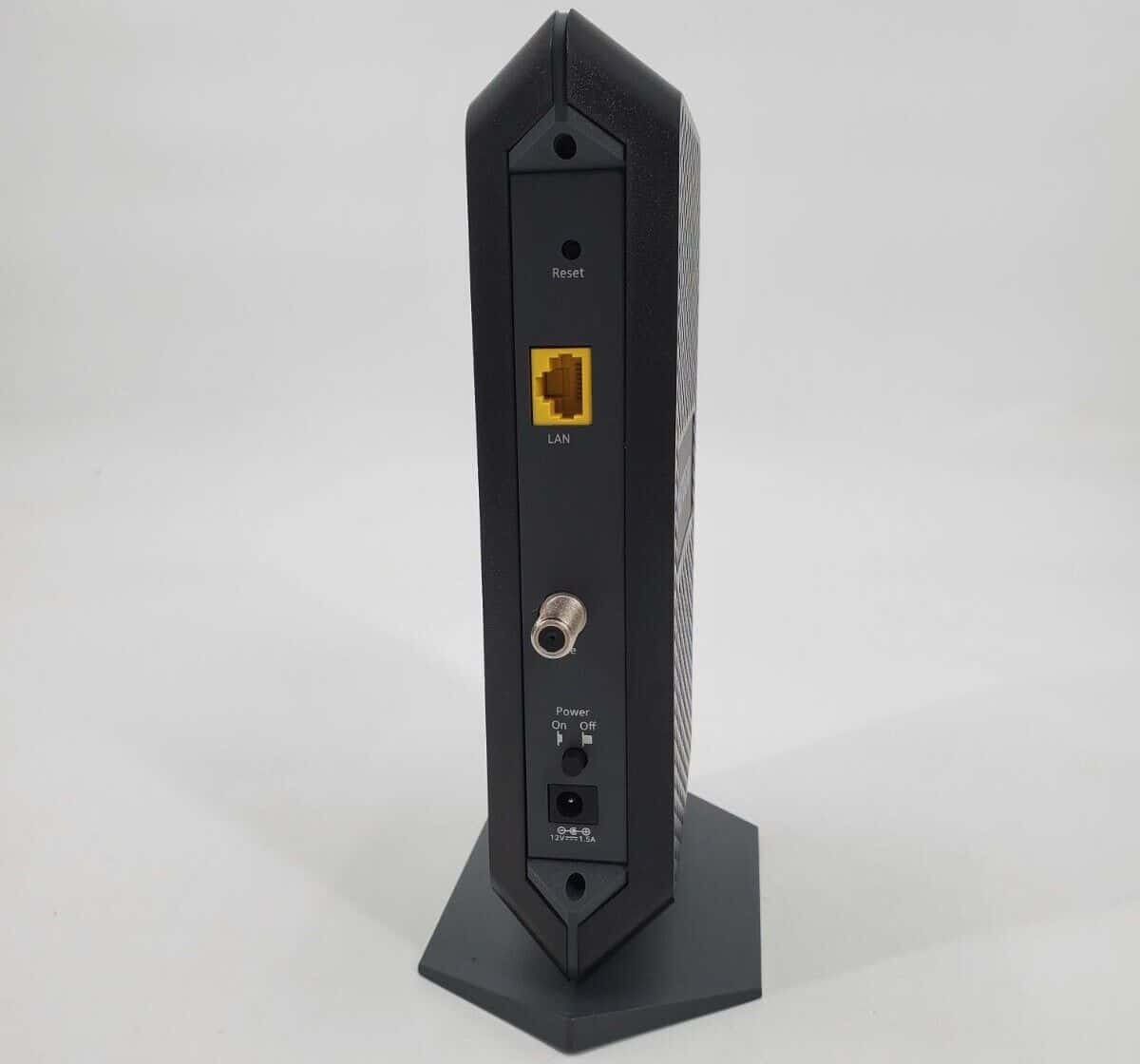
Netgear made sure that you mostly have to rely on a router to make the best use of the internet plans. The solitary Gigabit LAN port justifies the same. However, if you look at the rear panel, you will notice that the slot for coaxial cable is present, as expected.
👉 Related reading: 7 Best WiFi Boosters for RV in 2025
If you only have one device to work with, you can establish wired connections and get up to 1Gbps speeds without breaking a sweat, provided the ISP permits.
If you wish to learn all the differences between the two, here's a detailed comparison between CM1000 and CM1100 to help you make an informed decision.
Design & Build
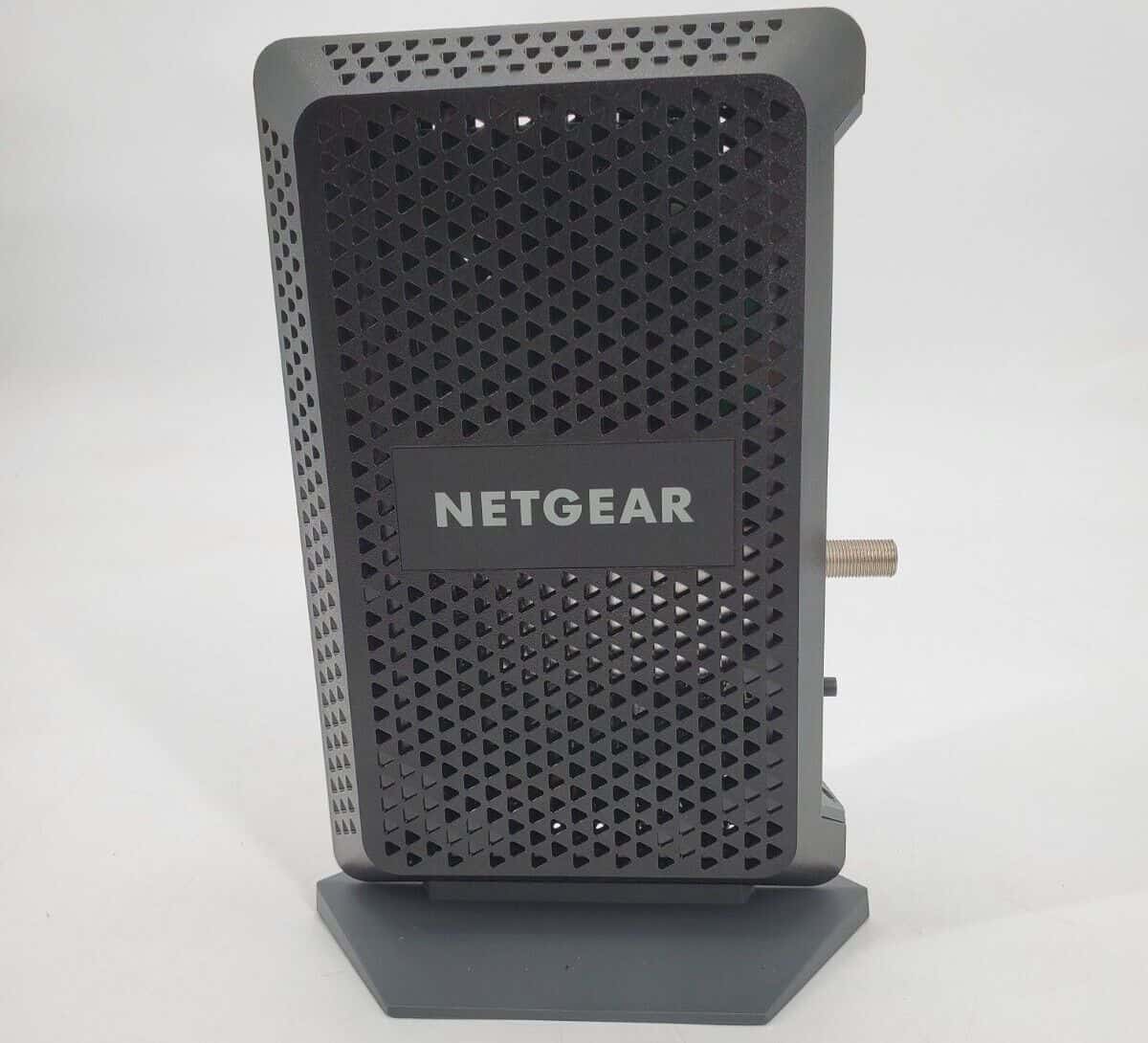
The CM1000 assumes a vertical form factor with dimensions fixed at 8.8 x 3.5 x 5.9 inches. Also, it is one of the few perfectly-ventilated modems in the market, and that too with a basal stand in place.
It weighs less than a pound and involves hardened plastic as the underlining structural material. Plus, there are 5 LEDs in play for indicating network conditions.
👉 Related reading: The “Internet for All” Initiative Launches BEAD Program
Hardware & Technology
Driving the Netgear 1 Gig modem is a powerful multi-core chipset. And even though Netgear hasn’t declared other hardware-specifics, you can expect the power-efficient processor to work alongside 512MB of RAM.
Moving further, this is one of the best-rated DOCSIS 3.1 modems with support for 2 x 2 OFDM/OFDMA channel bonding, making it future-proof and ready for multi-gig speeds.
However, the most promising aspect of this networking device is the DOCSIS 3.0 backhaul, with 32 x 8 channels to work with.
And for gig-level connections, DOCSIS 3.0 is more than sufficient. Adding to this is the built-in QoS support that enhances the wireless capabilities of the router that you wish to pair with this modem.
Netgear CM1000 Setup
Setting up and activating the CM1000 cable modem is fast and easy. It also comes with a setup instructions manual that's easy to understand.
Finally, it supports the IPv6 protocol to make configuration quicker and the Quality of Service functionality more impactful.
👉 Related reading: How To Fax Without a Fax Machine
Netgear CM1000 User Reviews








Frequently Asked Questions
No, the Netgear CM1000 is a standalone modem that needs to work separately with a router to offer wireless capabilities. And a gigabit LAN port actually comes in handy if you want to pair the modem to the WAN port of the router.
The associated Quality of Service allows the modem to prioritize traffic to the devices that want it the most. With QoS on offer, the modem powers the best quality of transmission to the router and lets the wireless device take it from there.
The CM1000 can easily support max speeds of up to 1000Mbps, provided you have Cox or Spectrum as the preferred ISP. For Comcast Xfinity, however, you might only be able to churn out 800Mbps at max. I tried connecting it with a Gig-internet plan from Xfinity, which maxed out at 750Mbps.
Verdict
The Netgear CM1000 might not seem like much, but it is a highly resourceful modem. Led by the best DOCSIS standard and a high-speed Ethernet port, the device is minimally effective.
And making things better is the affordable pricing that further justifies the faith most of us have in this modem.
Also Read: Netgear CM1000 vs ARRIS SB8200



